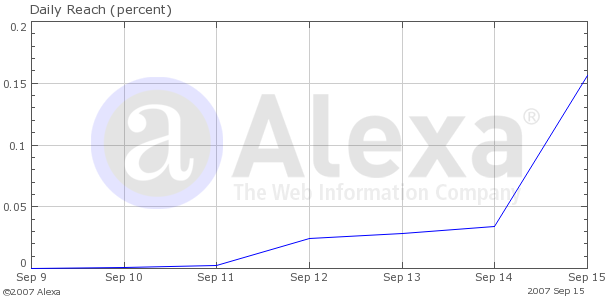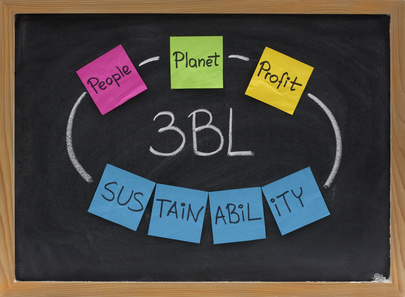Are you the kind of person who updates social media often?
I’m curious to know if you’ve found that your broadcasts have (re)invited people into your lives, people you may know through your career, school, religious circle, or whatever, who have approached you about something that they may have picked up through your social media updates.
It probably feels weird. “Who is this guy coming out of nowhere to contact me, and why?”
What people who broadcast often may not realize (or perhaps they do with their attention seeking updates), being seemingly approachable is likely an unintended consequence of posting often. If you post often, don’t be surprised if you give off the impression that you are inviting people to contact you.
“Hey, I’m broadcasting to my 1st degree network. Hopefully, someone’s paying attention, because you know, otherwise, I wouldn’t be doing this. I obviously have an audience and I’m looking to solicit some sort of reaction.”
The louder you talk, the farther it goes, and sometimes, there’s an opportunity there — for someone to help you, for someone to use you*, or for someone to simply share with you.
(*Yeah, approachability may not necessarily be all rainbows and fairies.)
The more top of mind you are, naturally, the more the people consuming your updates are thinking about you, and opportunities to do any of the above could arise.
I have a friend who loves sharing her love of coffee. Naturally, some cool coffee product comes out, and I share it with her (though if you ask her if I did, she probably won’t remember. Lots of people are doing the same, after all. She has an audience). She’s responsive, she’s great. She is the epitome of approachability and she handles herself well with everyone who she is clearly embracing through her updates.
That’s the way it’s supposed to be.
And when I shared this story with her, she said what I should’ve said all along: “To me, my social media posts and interactions are not about being selfish or self serving. It’s about connecting with people.”
In many cases, that reaction comes in the form of some sort of Like or comment. Or a retweet or a share. But you can and should expect people to reach out and contact you directly.
And you should be prepared to respond. Appropriately. Like you do with your updates.
After all, you’re already posting like crazy anyway. The right thing in social media etiquette would be to reciprocate directly, just as you are doing when you’re broadcasting to your entire social network.
I want to reinforce this point and drive it home. My coffee friend does this right. But not everyone does, especially those who particularly overshare every personal tidbit, yet they ignore the help that their attention-craving updates are commanding.
Because honestly, this has been gnawing at me. The alternative is self-serving. But then again, I suppose that’s what some people are going for: making updates that are self-serving, and being unwilling to help people who want to help you because you are posting (and potentially asking for help).
What’s the point?!
When I shared this idea with a friend of mine, she told me that the point is that it’s possible that people “forget the medium is really a two way street because they’re used to it and because they use social media to vent and/or curate a certain image of themselves and are therefore not necessarily looking for feedback.” Yeah, well, I have news for you, people. It is called social media. You need to give and take, not just do one of the above.
(Then again, there’s this thing called human nature. Not everyone knows how to give and take. Your behaviors shine through your actions more than you think, even if you claim you’re not that kind of person. Even if you’re an introvert in real life and an “extrovert” online. You’re digging a hole and building a picture that’s more obvious than you’d ever know.)
Some of these updates are calls for help. You need to be willing to accept that help. You need to be willing to embrace the approachability that you are inviting with these updates. If you aren’t prepared, don’t post those updates.
I had a friend a few months back who posted things repeatedly that truly resonated with me. I had some similar experiences, and I recommended a book for her to start reading so that we can discuss this together and so that I could help her steer her life in a better way. I was prepared to give this person an ear, to offer her time, to mentor her.
I wanted, as this particular personal social network commanded, to be a real friend.
She seemed receptive to hear what I had to say, except it was more of a “in one ear and out the other.”
This may mimic real life a bit. You admit that you’re fat, but you refuse to seek help. You’re depressed, you tell your friend, but don’t want to take the next step to see a therapist or get on medication.
You are your own biggest obstacle.
For months, I’ve had the following potential status update planned:
I just want to rant for a moment: If you post a lot on Facebook, you give off the impression that you’re approchable, because who doesn’t post on Facebook if not to garner attention and acknowledgment of the things that are going on in their lives? So when someone offers to help you privately, don’t blow them off. Don’t ignore the suggestions that they’re giving you BECAUSE they are giving you the decency of paying attention to your Facebook status, specifically giving you advice that they know could truly help you. That’s what friends are for, no? If you refuse to acknowledge such good faith approaches, you just do not deserve to have these people as your friends. Sometimes, I wonder why good people even bother trying to give attention to people who take it for granted.
It’s not me. It’s them. Especially in this case. Social media gives rise to these self-serving behaviors that people aren’t even cognizant of. We are using this relatively new medium to show different versions of ourselves, so we believe, but we’re not.
Still, if you’re posting often, be advised that you are opening a door for communication. There’s no way around this. If you have an audience, people feel like they can relate to or respond to what you’re sharing. Accept it, don’t dismiss it. (And by the way, if you’re the person who is initiating the communicating, don’t forget that if you’re not broadcasting as they are, they may want to know what you’re up to. Your friend definitely feels approachable, but coming to them out of the blue when you’re just the opposite will likely mean you need to catch up!)
Social media has changed the game. People are now silencing themselves out of fear of inviting the wrong comments in. People are silencing themselves because they prefer to keep a low profile. People are also doing quite the opposite, inviting criticism and controversy, or because they don’t mind being a broadcast medium for everything they believe in, everything they find funny, their political views, their religious views, and the food they had for dinner last night. What you post changes how people perceive you. What you post may be a wake-up call to your friend to reach out — and hopefully for good reasons. Just be prepared for this, and be sure to treat them well. After all, if they didn’t care, they wouldn’t be contacting you.
Photo Credit: Surrounded by Pigeons





